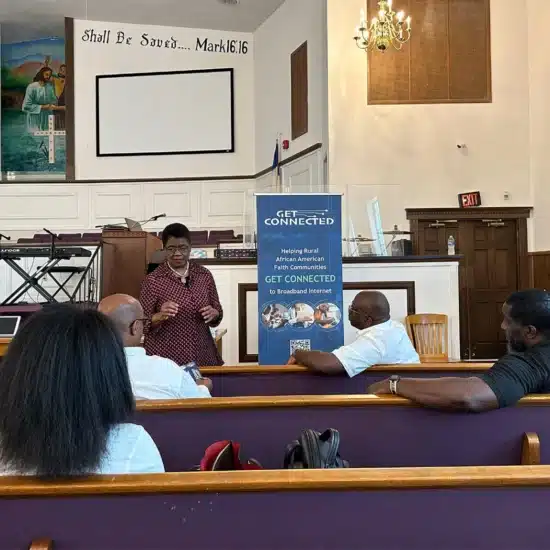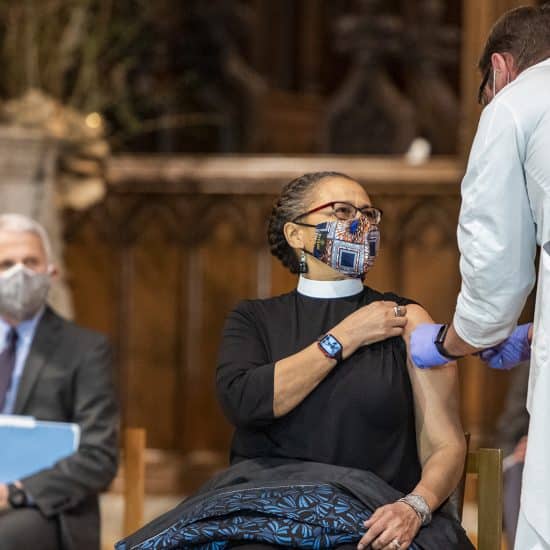SAN FRANCISCO (ABP)—“You cannot go to church,” Christian philosopher Elton Trueblood once said. “You are the church wherever you go.” That is especially true if you are the pastor.
While many people with high-demand occupations view Sunday worship as a haven from day-to-day pressures, ministers are on call 24/7. Clergy rank high in job satisfaction, because most don’t enter the field expecting to get rich but are motivated by wanting to make a difference in people’s lives. At the same time, clergy rank among the highest rates of obesity, depression, high blood pressure and adult-onset diabetes when compared to other professions.
 |
For that reason, congregational experts say it is extremely important—but often neglected—that ministers and congregations take seriously ministerial wellness and self-care.
“Healthy clergy make for healthy parishes,” Pamela Lee Cranston says in a clergy-wellness handbook for the Episcopal Church. “Unfortunately, unhealthy work patterns practiced by clergy in congregations have resulted in burnout, if not actual physical, spiritual, emotional and psychological breakdowns.”
The Episcopal Church is among American denominations advocating a holistic understanding of work for clergy and taking a closer look at issues of “wellness” related to ministry.
Cranston says clergy face several unique career challenges. One is “dual relationships.” The reality of clergy vocation is that, whether they would like to or even if they should, ministers never can completely “de-role” with members of the congregation.
Another is ambiguity about expectations. In secular fields, employment usually is evaluated by “performance.” The vocation of ministry, however, is not defined as just another job, but rather in relational terms of “being” and “doing” in ways not always measurable by a bottom line.
Closely related is the dual nature of the relationship between minister and congregation.
“The reality of today’s church is that the working pastoral relationship between clergy and congregations is both contractual and covenantal,” Cranston writes. “It is both a job and a vocation, although not in equal measure. Covenant assumes the best aspects in a pastoral relationship, while contracts protect both the clergy and congregation from the worst.”
Studies suggest 75 percent of the stress in clergy life is related to unclear and improper sense of boundaries related to work. According to the Alban Institute, to work more than 50 hours per week is considered “dangerous,” but many ministers are expected to do this consistently.
Roy Oswald of the Alban Institute says one in five clergy score high on the burnout scale. “With stress, too much change or novelty forces people to overuse their adjustment capacities and after a while they become physically or emotionally ill,” he said. Furthermore, he adds, burnout occurs “when people over use their listening and caring capacities.”
Research also links clergy burnout to family problems, poor communication with congregations, financial responsibility and clergy sexual abuse.
“Clergy are not called simply to be ‘institutional CEOs and business managers’ but are in the ‘health and wholeness business,’” Cranston says. “The healthier and more whole clergy are the more likely parishioners and congregations will become healthier too.”
The Evangelical Lutheran Church of America profiled its typical ministers as a 51-year-old male with symptoms of depression, high blood pressure and overweight with heightened risk of
heart disease and other illnesses. He works 60 to 70 hours a week in a sedentary job lacking physical exercise and reports considerable work-related stress. He is married with three children. One expresses interest in following their father into full-time ministry. The pastor, however, expresses little enthusiasm for encouraging a child to do so.
The ELCA promotes a “Wholeness Wheel” model for balancing the interconnected aspects of individual wellness:
• Physical well-being. “While we are not all born perfectly healthy and no one makes it through life without injury or illness, with tending and nurturing we can live well even with disabilities, injuries or illness. Those with good health can lose it as a result of unhealthy lifestyles and behaviors. Keeping the wholeness wheel in perspective means optimizing our physical health through good nutrition, physical activity and avoiding risks to our health.”
• Emotional well-being. “Being emotionally well means feeling the full range of emotions and expressing those emotions appropriately. Not feeling emotion is a sign of stress or depression, just as having emotions that you cannot control may be the sign of emotional distress. Physical health problems can affect our emotions, and emotional problems affect our physical health.”
• Social well-being. “We were created to be social persons by God with instructions to help and love each other. We are nourished by the love and intimacy of our family and friends. Isolation is a significant risk for depression and premature death. Whether we are introverted or extroverted, regular social contact is essential for health. Being healthy means having healthy relationships with family, friends, co-workers and others. Studies have shown that volunteering in service to others actually lengthens life.”
• Intellectual well-being. “Alzheimer’s disease or dementia is feared by all who have seen or heard about the personal frustration or social disruption it causes. While we cannot be certain that we will never experience dementia or something similar, using our minds keeps them alert and active. … We can stretch our minds by experiencing new things—music, art, hobbies or travel. Pushing ourselves at work by seeking out new responsibilities and pursuing lifelong learning keeps us healthy and growing.”
• Vocational well-being. “Having a sense of purpose is important in living a healthy life. We all want to feel that we are using the gifts God has given us to make this world a better place. We need to be aware of what those gifts are and make good use of education and training to hone our skills. We need to always be seeking for opportunities to make a difference. If not through our occupation, then perhaps through volunteering in the community, nurturing our family, or actively participating in church.”
• Spiritual well-being. “Loving God with all our heart, soul, mind and strength impacts everything we do and everything we are. … Nurturing your relationship with God through daily prayer or devotion is the first step. Knowing that God is always present and has given us the gift of grace through the death of Jesus Christ allows us to stumble along the way and keeps us from getting lost.”






